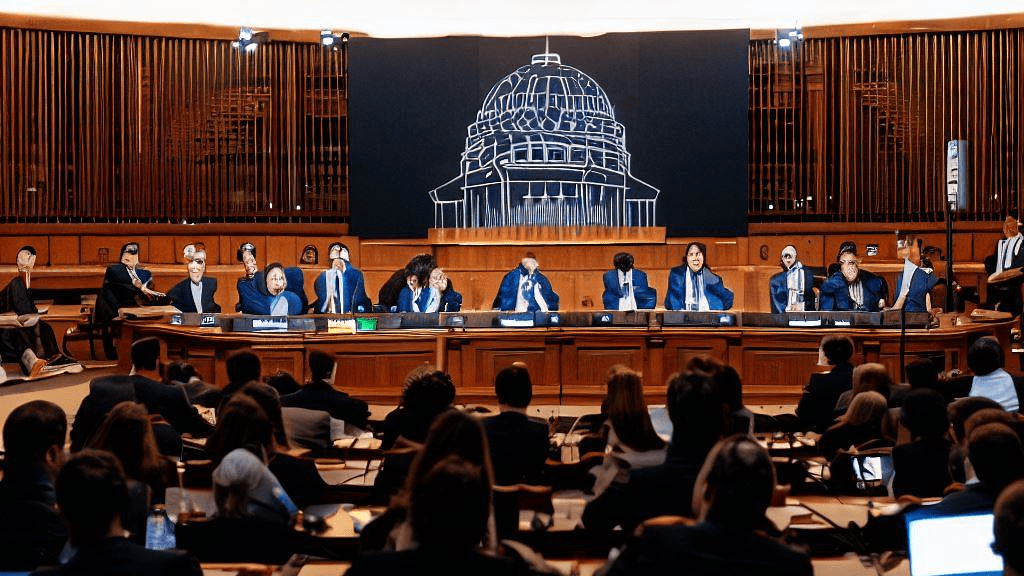
In a bid to address the evolving landscape of artificial intelligence (AI) and its impact on society, Brazil’s Senate has taken a significant step forward. On September 12, the Senate’s Internal Temporary Commission on Artificial Intelligence (CTIA) unveiled its work plan to deliberate, scrutinize, and potentially amend Senate Bill No. 2338, a pivotal piece of legislation aimed at regulating AI. This move reflects Brazil’s commitment to safeguarding fundamental rights, promoting human dignity, and fostering technological innovation while grappling with the ethical and societal implications of AI.
The bill, introduced by Senator Rodrigo Pacheco in December 2022, is framed as a multifaceted proposal designed to uphold the well-being of the Brazilian populace, balancing economic growth and social progress. Over the next 90 days, the Commission intends to conduct a series of 15 sessions, which will include public hearings, to gather input from various stakeholders. Within 120 days, they aim to produce a comprehensive assessment of the bill’s provisions.
However, this initiative has not been without its fair share of debate and concerns. One notable point of contention revolves around the “precautionary principle” embedded within the bill. Senator Astronauta Marcos Pontes, the Commission’s vice-president, expressed reservations about how this principle could potentially stifle technological advancements and put Brazil at a disadvantage in the global AI race.
The discussions surrounding AI regulation have extended far beyond Brazil’s borders. On September 13, an exclusive gathering known as the Senate “AI Insight Forum” took place in Washington D.C., where top executives from some of the world’s largest tech and web companies converged to engage in closed-door deliberations with U.S. lawmakers. The forum, organized by Senate Majority Leader Chuck Schumer, featured 22 prominent figures, including Elon Musk (owner of X, formerly Twitter), Sundar Pichai (Google), Mark Zuckerberg (Meta), Sam Altman (OpenAI), and Bill Gates (Microsoft).
Brazil’s Quest for AI Regulation: A Deliberate Approach
Brazil’s foray into AI regulation underscores the nation’s commitment to navigating the ever-evolving landscape of technology with careful consideration. Senate Bill No. 2338, at its core, seeks to strike a balance between harnessing the potential of AI for economic growth and safeguarding the rights and dignity of its citizens.
Senator Rodrigo Pacheco’s proposal reflects a recognition of AI’s transformative power and the need for comprehensive regulation to ensure that it serves the best interests of society. The bill’s multifaceted nature highlights the intricate web of ethical, legal, and societal considerations that come into play when regulating a technology as groundbreaking as AI.
The Precautionary Principle Debate
At the heart of the debate surrounding AI regulation in Brazil lies the “precautionary principle” enshrined in Senate Bill No. 2338. This principle calls for a cautious approach to the deployment of AI technologies, emphasizing the need to assess potential risks and implications before widespread adoption. While it may seem like a prudent measure to some, it has raised concerns among those who fear it could stifle innovation and hinder Brazil’s competitiveness in the global AI arena.
Senator Astronauta Marcos Pontes, a key figure in the Commission, has voiced reservations about the potential consequences of the precautionary principle. He believes that stringent regulations could deter investment and slow down AI development, ultimately placing Brazil at a disadvantage. The delicate task at hand is to strike a balance between safeguarding against unintended negative consequences and fostering an environment conducive to technological advancement.
The Global Conversation on AI Regulation
Brazil’s deliberations on AI regulation align with a broader global conversation surrounding the ethical and legal dimensions of AI. The Senate “AI Insight Forum” held in Washington D.C. on September 13 provided a platform for some of the world’s most influential tech leaders to engage in closed-door discussions with U.S. lawmakers.
The forum, organized by Senate Majority Leader Chuck Schumer, brought together a distinguished group of individuals who are at the forefront of technological innovation. Elon Musk, known for his pioneering work in AI and owner of X, formerly Twitter; Sundar Pichai, CEO of Google; Mark Zuckerberg, CEO of Meta; Sam Altman, representing OpenAI; and Bill Gates, the co-founder of Microsoft, were among the notable participants.
This high-level gathering was a testament to the recognition of AI’s far-reaching impact on society and the need for proactive regulation. The discussions revolved around potential approaches to regulation that can balance innovation and ethical considerations. It provided a unique opportunity for lawmakers to gain insights from industry leaders who are driving the AI revolution.
The Road Ahead: Balancing Innovation and Ethics
As Brazil embarks on its journey to regulate AI, it faces a formidable challenge – striking the right balance between innovation and ethics. Senate Bill No. 2338 underscores the importance of upholding fundamental rights and dignity while embracing the transformative potential of AI.
The “precautionary principle” debate serves as a reminder that the path to regulation is fraught with complexity. Finding common ground between those who champion a cautious approach and those who emphasize the need for innovation will be essential to crafting effective and equitable AI regulations.
The global tech leaders’ meeting in Washington D.C. highlights the interconnectedness of the AI conversation. It is not limited to national borders but extends to the international stage, where collaborative efforts are essential to shape a future where AI serves humanity’s best interests.
In conclusion, Brazil’s proactive approach to AI regulation, as exemplified by Senate Bill No. 2338 and the deliberations of the Senate’s Internal Temporary Commission on Artificial Intelligence, reflects a commitment to responsible technological advancement. The nation, like many others, is grappling with the challenges and opportunities presented by AI, and the ongoing debates and discussions will play a pivotal role in shaping the AI landscape for years to come.



Get the latest Crypto & Blockchain News in your inbox.